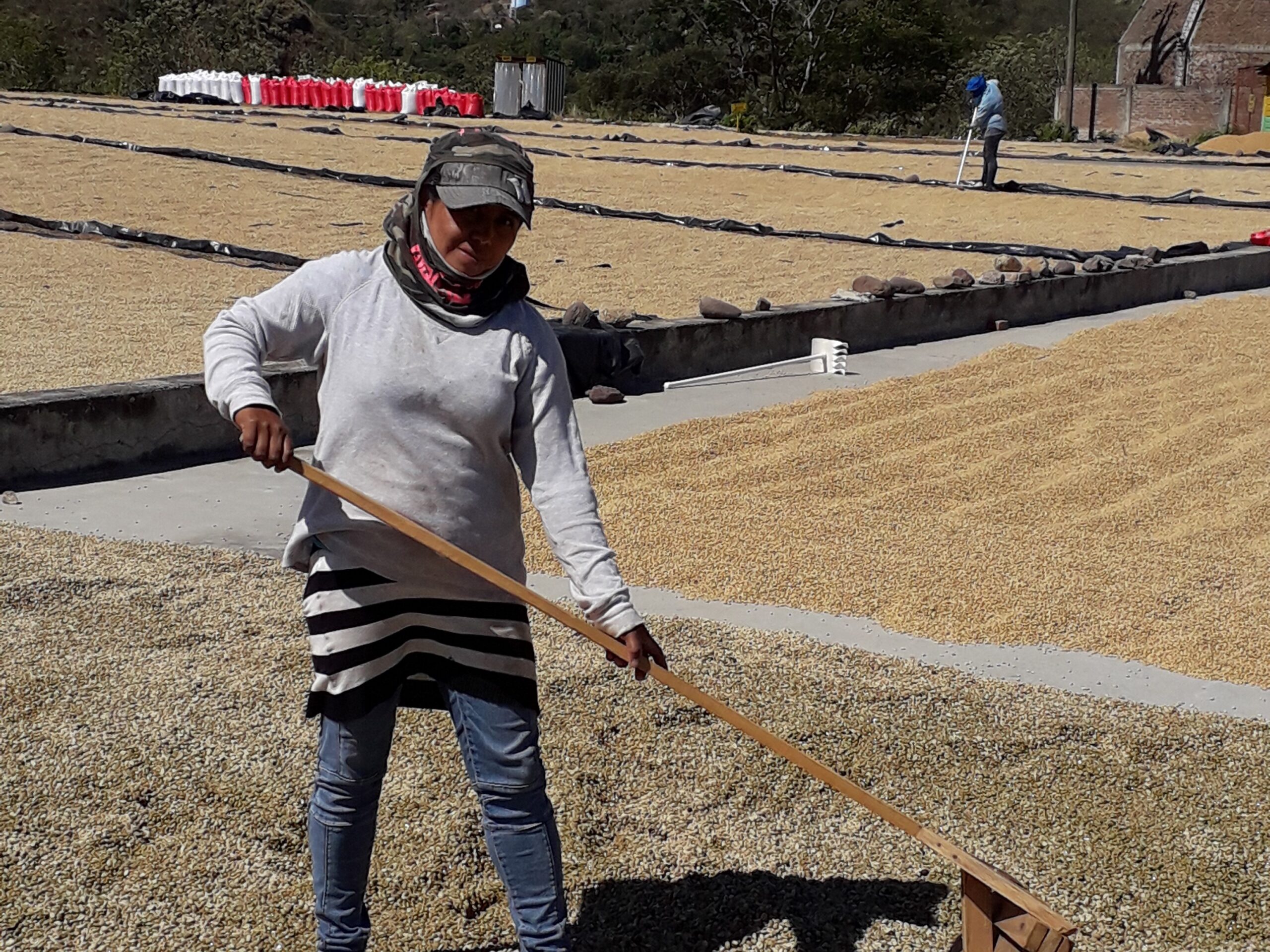 Cooperativa de Servicios Múltiples Flor de Café R.L. (“Flor de Café”), a coffee cooperative in Murra, Nueva Segovia, Nicaragua, is accustomed to the powerful tropical storms, flooding, and landslides that accompany hurricane season each year. As climate change intensifies, these storms have grown in strength, damaging homes and buildings, destroying coffee crops, and harming farmers’ livelihoods. For Flor de Café’s farmers, this climatic variability, coupled with heavy rains, have resulted in major difficulties during the post-harvest period.
Cooperativa de Servicios Múltiples Flor de Café R.L. (“Flor de Café”), a coffee cooperative in Murra, Nueva Segovia, Nicaragua, is accustomed to the powerful tropical storms, flooding, and landslides that accompany hurricane season each year. As climate change intensifies, these storms have grown in strength, damaging homes and buildings, destroying coffee crops, and harming farmers’ livelihoods. For Flor de Café’s farmers, this climatic variability, coupled with heavy rains, have resulted in major difficulties during the post-harvest period.
Flor de Café was founded in 1998 by 113 smallholder coffee farmer members who joined forces to obtain access to financing and generate higher prices for their coffee. Today, the cooperative has 908 members, 212 of whom are women, as well as more than 90 direct employees and 270 indirect employees. Flor de Café is committed to producing sustainable, high quality coffee for export, but also to supporting its members and the surrounding Murra community with technical coffee production assistance and training. A key part of their mission is ensuring that their coffee production processes are eco-friendly.
Root Capital’s partnership with Flor de Café dates back to 2013, when we loaned the cooperative $455,000 in trade credit. Over the course of 10 years, we have loaned Flor de Café nearly $7.6 million and provided the cooperative with a range of agronomic, climate resilience, digital business, and business management advisory services.
Due to the tropical, humid climate in Murra, the post-harvest period typically brings significant challenges for Flor de Café’s farmers. Not only have they had problems with the wet-milling process, but they’ve also struggled to effectively dry their coffee. Specifically, they have had trouble transporting their coffee to the storage center in optimal drying conditions.
The drying period is a key stage in the coffee production process and a major determinant in coffee’s quality. For the farmers of Flor de Café, higher quality coffee translates to higher sale prices on the international market, which means higher incomes and improved livelihoods. Conversely, the inefficient and ineffective drying of coffee often leads to increased overall production costs.
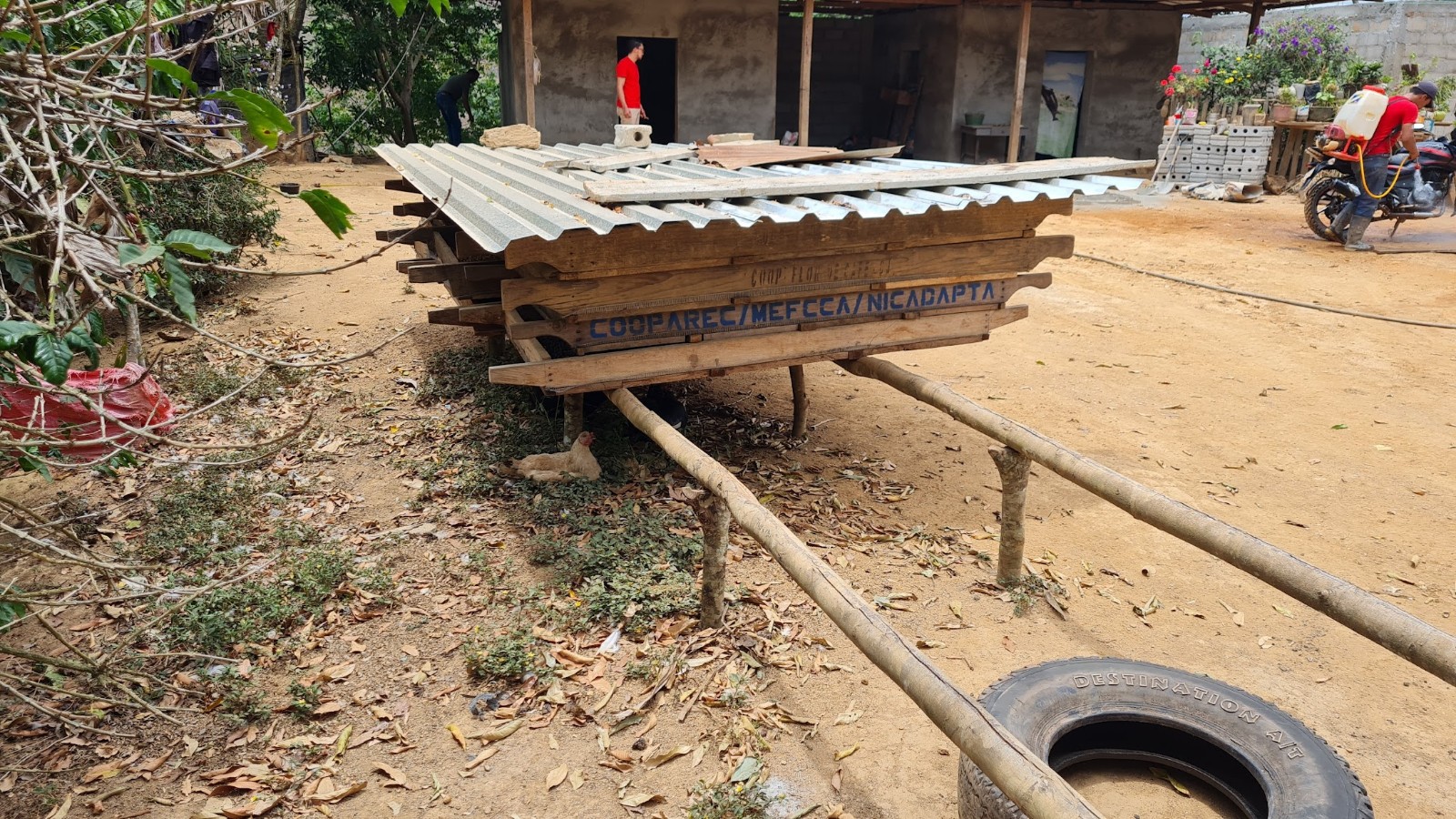 Caption: Flor de Café’s open air coffee drying process (prior to the installation of the solar dryers), which left the coffee exposed to heavy rains and any humidity that seeped in at night. High moisture levels can stain coffee and decrease its quality. Photo credit: Root Capital
Caption: Flor de Café’s open air coffee drying process (prior to the installation of the solar dryers), which left the coffee exposed to heavy rains and any humidity that seeped in at night. High moisture levels can stain coffee and decrease its quality. Photo credit: Root Capital
The Far-Reaching Impact of a Single Root Capital Agronomic and Climate Resilience Grant
To contend with the challenges associated with the drying process, Root Capital’s agronomic advisors suggested covered solar dryers; however, Flor de Café lacked the upfront capital needed to invest in this drying technology. That’s where a climate resilience grant from Root Capital came in, providing the initial funds necessary for the cooperative to purchase and construct covered, solar coffee dryers. In 2022, the cooperative used the $20,000 climate resilience grant to construct six domed structures, shown below, throughout various communities in Murra, in order to ensure a controlled, efficient, and reliable coffee drying process for Flor de Café’s coffee producers.
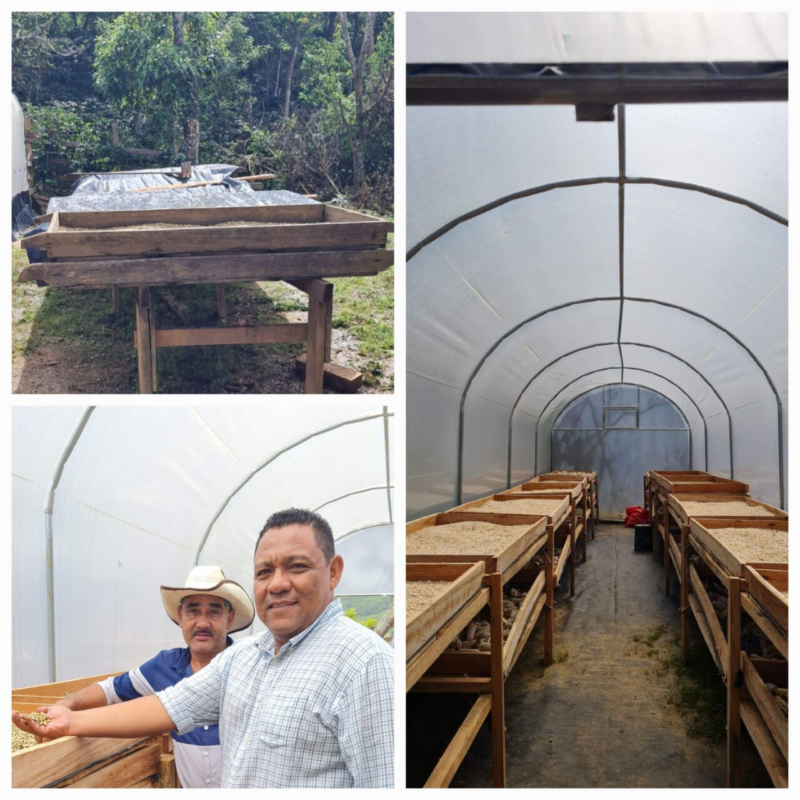 Caption: Before and after photos showing the open air coffee drying process before the construction of Flor de Café’s domed solar coffee dryers. Photo credit: Root Capital
Caption: Before and after photos showing the open air coffee drying process before the construction of Flor de Café’s domed solar coffee dryers. Photo credit: Root Capital
The installation of these solar coffee dryers not only reduced production costs, but also resulted in cleaner, better quality coffee, greater exportable coffee yields, and higher income for the cooperative and its coffee producer members. Thanks to a more uniform drying process, the solar coffee dryers also minimized abrupt air temperature and humidity variations, factors that can give rise to mold, cracked coffee beans, and poor tasting coffee. As an added benefit, the solar coffee dryers have decreased total drying time by 40%.
As Nicaraguan coffee farmers contend with increasingly variable precipitation patterns that affect the coffee drying process, covered drying beds represent a proactive method of adapting to climate change. But this issue isn’t restricted to Nicaragua-we’ve also provided climate resilience grants to coffee clients in Peru and Rwanda, with similar success.
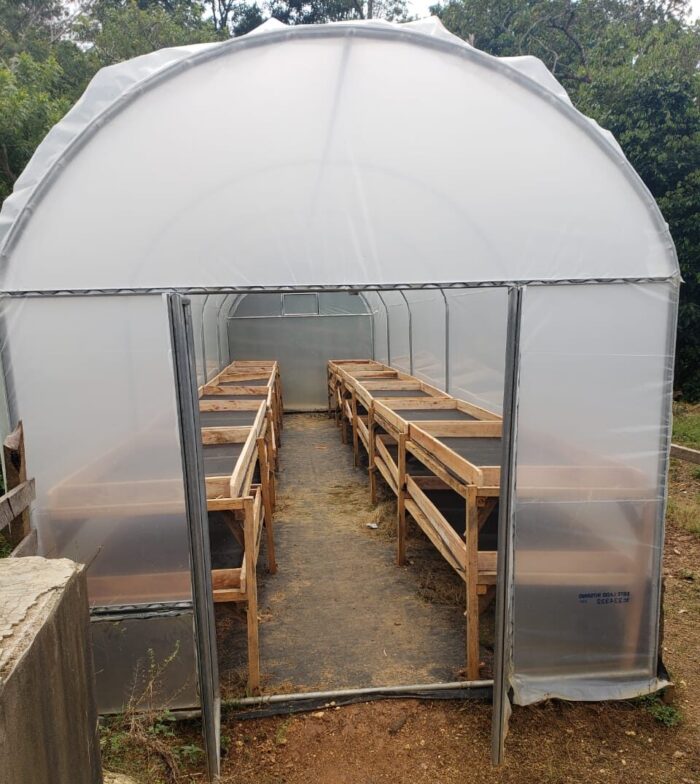 Caption: One of Flor de Café’s domed solar coffee dryers, which has helped preserve coffee quality by minimizing dust and contaminant exposure. Photo credit: Root Capital
Caption: One of Flor de Café’s domed solar coffee dryers, which has helped preserve coffee quality by minimizing dust and contaminant exposure. Photo credit: Root Capital
An Award and the Ripple Effect of Root Capital’s Impact
Flor de Café has seen such great success from investing in this new drying technology that the cooperative decided to enter the Producción Más Limpia (Cleanest Production) contest in Managua, Nicaragua. This national contest, sponsored by the Nicaraguan government, recognizes Nicaraguan companies and cooperatives across multiple industries that voluntarily commit to protecting the environment, all while improving their industrial efficiency and competitiveness to achieve sustainable development. And Flor de Café won the prize for cleanest coffee production thanks to their investments in solar dryers that they built with the resilience grant! This award is a testament to Flor de Café’s exemplary efforts to install and fully utilize climate-friendly drying technology.
Flor de Café’s General Manager Nelson Quezada was recently featured on a national radio program espousing the benefits of solar dryers for wet-processed coffee. Through the radio and other channels, the cooperative is now sharing their knowledge with other coffee cooperatives and businesses, and inviting local coffee businesses to visit their facility in Murra to learn about installing and using solar dryers.
The use of solar dryer technology is key to maintaining coffee quality and increasing coffee yields.-Flor de Café’s General Manager Nelson Quezada
We’re so proud of Flor de Café for not only winning this award, but also for encouraging other cooperatives located in similarly fragile, vulnerable ecosystems to take advantage of this technology that improves farmers’ incomes and boosts their resilience to climate shocks.
You may also be interested in...
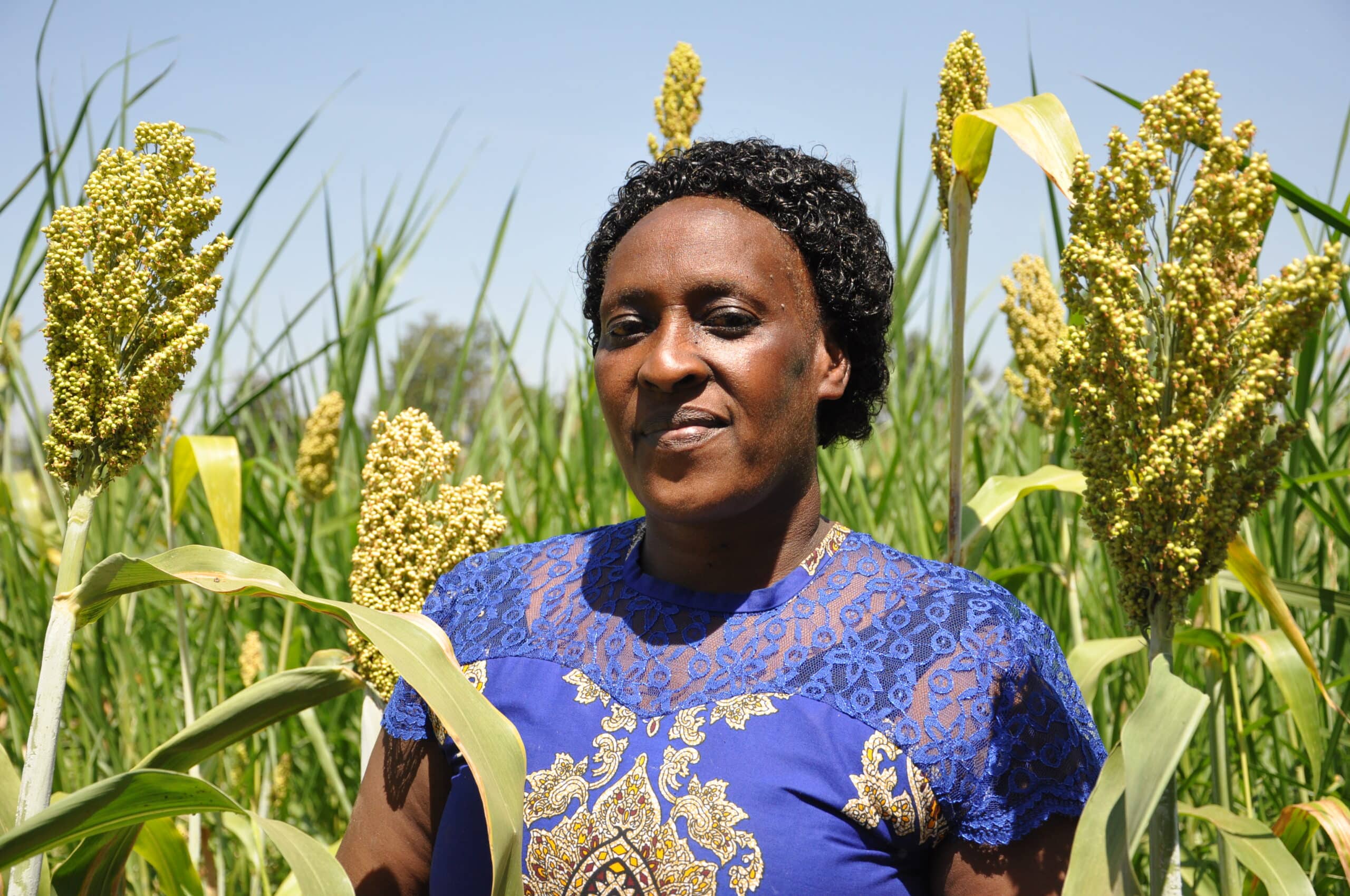
Announcing Our New Climate Resilience Roadmap Annual Report
Deep in the Meru region of Kenya, Shalem Investments has witnessed firsthand the effects of shifting
Date:
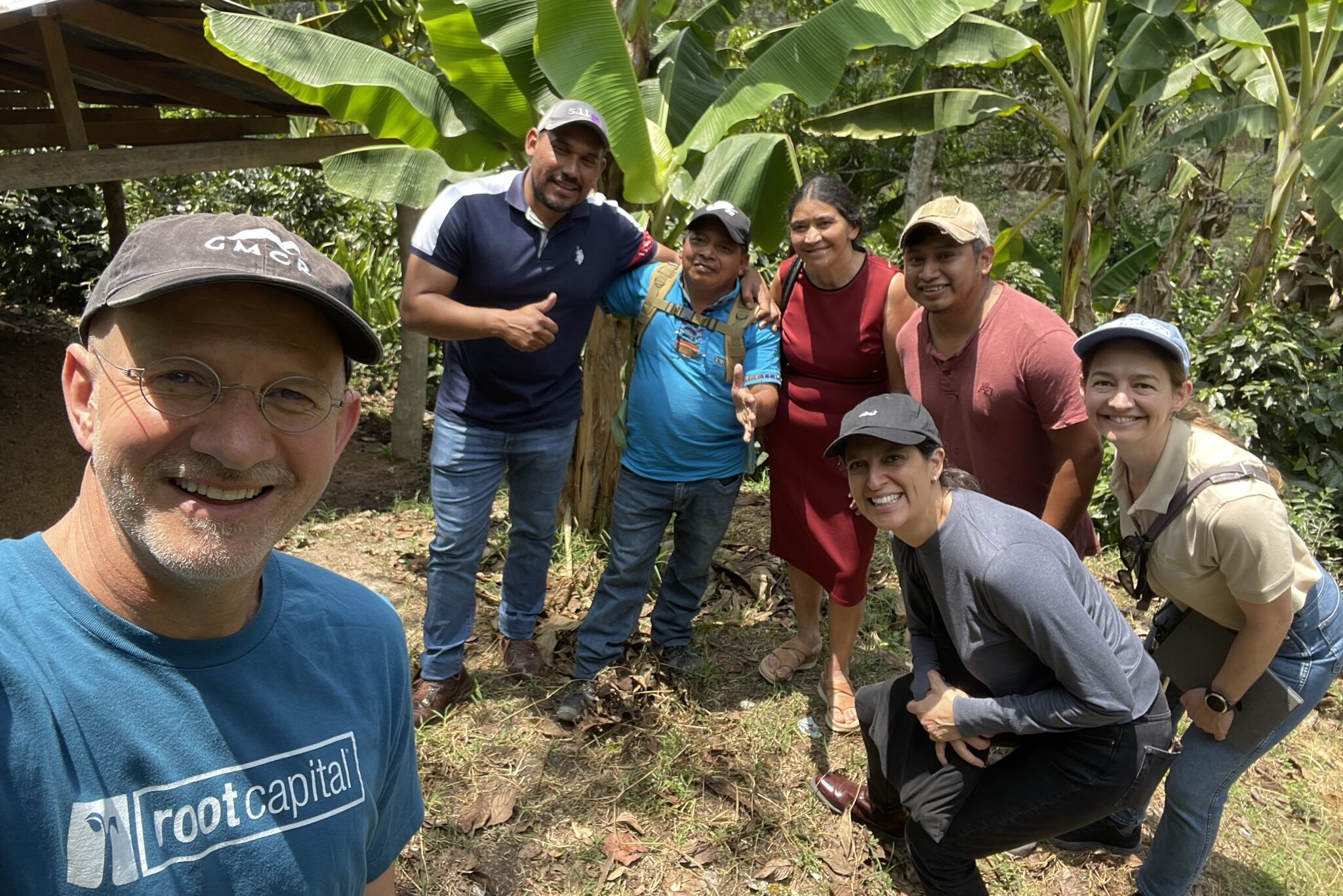
IN PHOTOS: How Small Businesses Are Driving Rural Prosperity and Tackling Climate Change in Honduras
In March, I went on my fourth trip with Root Capital—one very near and dear to my heart because it was to my home country: Honduras. As someone who was born and grew up there—and who has since spent a career working to address the challenges of poverty, climate change, and migration in this region and beyond—it was very meaningful to once again be amid the verdant farms and vibrant communities at the heart of this work…
Date:
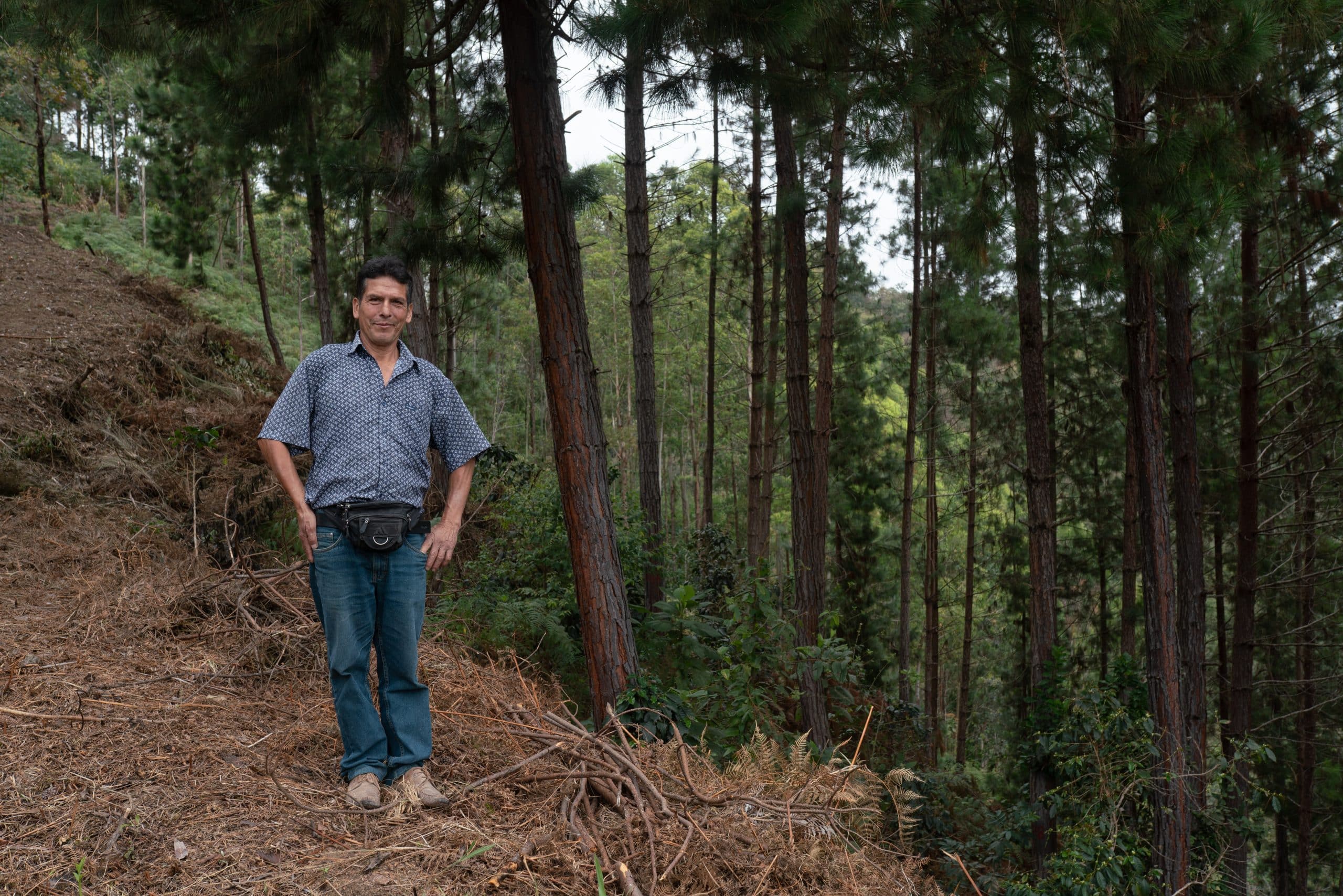
Carbon, Climate, and Coffee: Paying Farmers for Their Efforts to Combat Climate Change
CENFROCAFE producer member Anselmo Díaz on his coffee farm. Rumi Bamba, Las Pirias, Jaen, Cajamarca, Peru.
Date:

